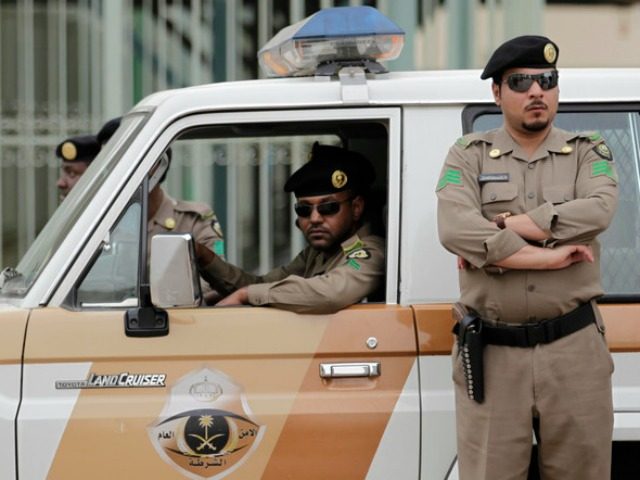The government of Iran has responded to a Saudi court’s decision to sentence 15 Iranian citizens to death on charges of espionage, accusing Saudis of “forging” divides among Muslims “and spreading false accusations.”
Saudi Arabia’s Sharia courts found fifteen Iranian nationals guilty of spying for Tehran earlier this week, sentencing them all to death after a ten-month-long trial. The fifteen were arrested in addition to another group of 32 accused of working for the Iranian government to collect intelligence; most of the latter were Saudis, with an Iranian national and an Afghan among them, according to Saudi Arabia’s Al-Arabiya network.
Iranian Foreign Ministry spokesman Bahram Qassemi railed against the sentencing on Tuesday, accusing Saudi Arabia of “politically-motivated and unfounded” charges against the individuals involved. “At a time when the Muslim world and the [Middle East] region require unity and avoiding issues that would cause tensions, forging and spreading false accusations, which are far from the truth will not be in the interests of any regional country,” Qassemi said in a statement.
He added a denial of all the charges linking Tehran to the case: “The Islamic Republic of Iran has not had any activity in Saudi Arabia against the international regulations and diplomatic principles, and such baseless accusations are being made with political objectives.”
The Saudi espionage case is far from the only one of its kind involving Iranian nationals. Last week, the government of Kenya arrested two Iranian attorneys whom evidence revealed were working to amass intelligence to plan a terrorist attack against the Israeli embassy, among other targets, in the African country. The government of Iran deemed the incident a “misunderstanding,” claiming the men were in Kenya to help the legal case of two other Iranians arrested for plotting a terrorist attack on behalf of the Iranian government.
Similar incidents of Iranian nationals or allies arrested for espionage or terror activity abroad have been documented in Uruguay, Turkey, and Nigeria.
Iran, in turn, has engaged in a number of questionable arrests of foreign or dual citizens on espionage charges. In August, the government announced the arrest of a British-Iranian national allegedly “linked to the British espionage service.” U.S. citizens Gholamreza “Robin” Shahini and Jason Rezaian also faced similar charges.
Saudi Arabia, meanwhile, has engaged in arrests of Iranian nationals on similar charges extensively, outraging the Iranian government. The Iranian execution sentence this week recalls a similar incident in December, in which the Saudi government executed Shiite cleric Nimr al-Nimr for acting as an “enemy of the state.” Following his execution, Iranians firebombed the Saudi embassy in Tehran, resulting in an end to formal diplomatic relations between the two countries.
Iranian officials blamed the United States and Israel for al-Nimr’s execution and released 152 people arrested in the firebombing incident in March.
Since then, Iran has issued repeated protests against Saudi Arabia, most notably in September, when Tehran demanded that Saudi Arabia hand over control of the hajj, the mandatory pilgrimage all Muslims must make to Mecca. Iranian officials argued that a stampede killing thousands in 2015 proved that Riyadh was ill-equipped to organize the pilgrimage; Saudi officials responded by dismissing Iranians as “not Muslims.”

COMMENTS
Please let us know if you're having issues with commenting.